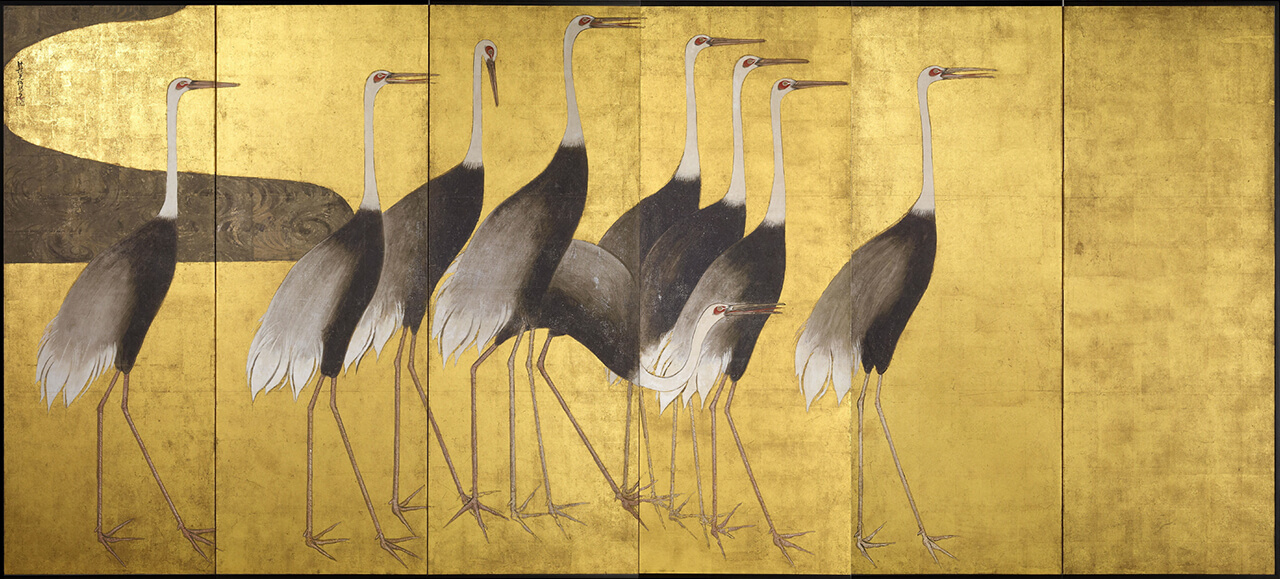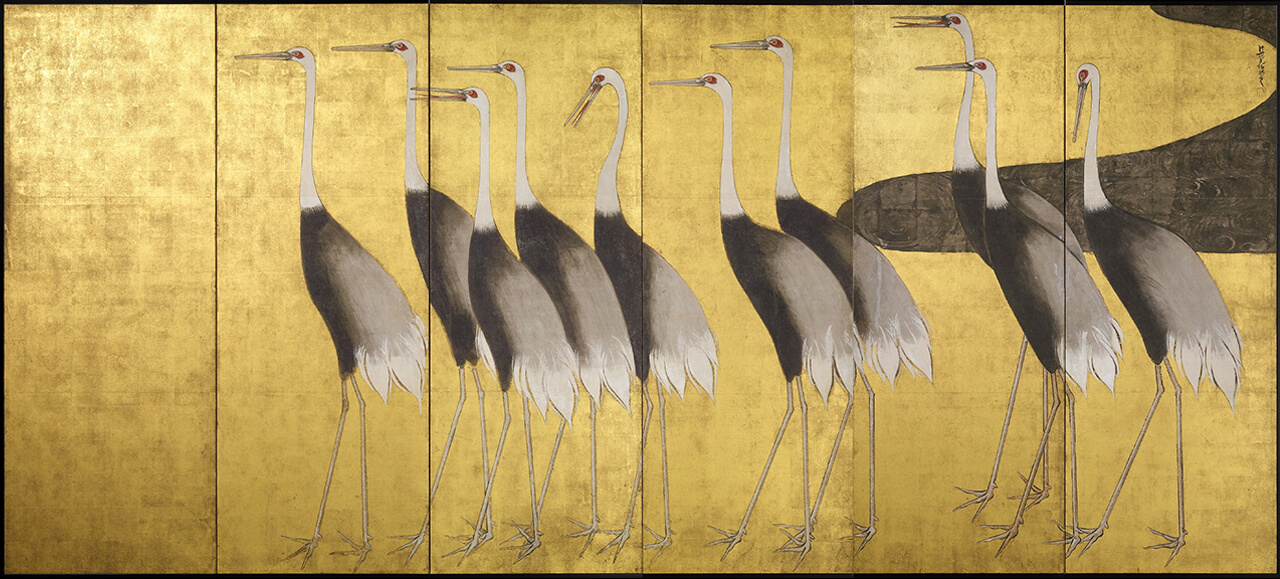Cranes
Facsimiles of works in the collection of the Freer Gallery of Art, Smithsonian Institution, Washington, DC: Purchase, F1956.20, F1956.21
These images are based on the high resolution facsimile produced by the Tsuzuri Project. Unauthorized copying, duplication, or transfer of these images is strictly prohibited.
DATA
- Artist:
- Ogata Korin
- Historical era:
- Edo (17th to 18th century)
- Material:
- printed, gold on washi paper
- Medium:
- Pair of six-fold screens
- Theme:
- High Resolution Facsimile of Japanese Art Abroad
- Size:
- Each screen H166.0 × W371.0 cm
- Recipient:
- Tokyo Metropolitan Art Museum (Tokyo Metropolitan Foundation for History and Culture)MAP
[Original]
- Current owner:
- The Freer Gallery of Art of the Smithsonian Institution
- Material:
- ink, color and gold on washi paper
DESCRIPTION
This bold composition presents a grouping of black and white cranes extending to the left and right across a gold background. It is the work of Ogata Korin, a painter representative of the Edo period who created his own world with innovative compositions and graceful depictions. The 19 cranes in this work, grouped in a rhythmic arrangement, are walking in a stylized manner toward the center of the folding screen. Stylized swirling waves at both ends of the screen create a unique sense of space. Korin was born to the family who operated the wealthy drapery store "Kariganeya" in Kyoto, where he began painting full-time in his 40s. Korin represented the Rimpa School, with its rich decorative style that flourished during the Edo Period. In later years, Sakai Hoitsu and Suzuki Kiitsu drew with a similar sense of composition and demonstrated the flow of the Rimpa School.


